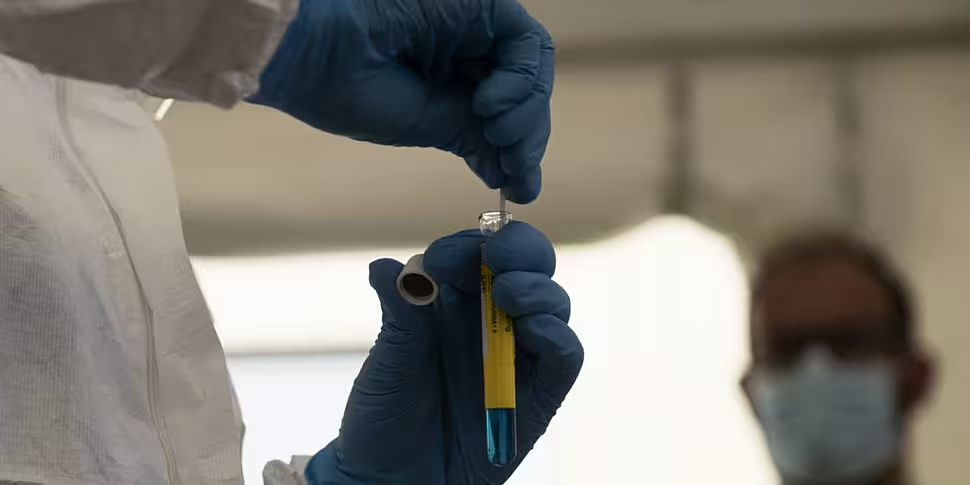Rolling out more mobile COVID-19 testing units could help rapidly 'quash' clusters when they arrive, according to a medical charity.
There has been renewed focus on the issue of testing availability in the wake of the increase in cases in counties such as Kildare, Laois and Offaly.
As a local lockdown begins in those three countries, the Government has pledged to "ramp up testing" in sectors affected by the outbreak - including "regular and rapid screening testing of workers at larger food plants".
'Drive through' testing centres are also operating, including a new one in Newbridge - with the HSE saying more pop-up sites will be set up if needed.
NAS Covid-19 pop up Swab site operational in Newbridge to support CHO 7 and local public health. @DonnellyStephen @NasDirector @merrionstreet @HSE_HR @HSE_DA pic.twitter.com/KW9BtKlZQT
— Richard Quinlan (@RQuinlan999) August 8, 2020
One medical charity says mobile testing can work alongside the community testing to rapidly respond to coronavirus clusters when they arise.
Fiona O'Reilly is CEO of Safety Net, which runs a mobile testing unit.
She explained: "Recently we've had to reconfigure our whole service to deal with this pandemic.
"Over the last couple of months, we have developed a rapid response COVID cluster approach. It basically means we're informed... of a cluster - [meaning] more than one person in a congregate setting.
"We go in with our team of doctors and nurses, and we immediately jump on the cluster: we swab everyone in the facility, and we have... a device which can rapidly detect the virus.
"We get those test results within an hour.
"Very, very quickly we can get on top of the situation - we can isolate people who are positive and their close contacts."
"You do need a mobile response"
Ms O'Reilly said her group has been involved in some testing in Kildare, Laois and Offaly, where they've found several asymptomatic cases of COVID-19.
She observed that communities now have to get used to "living with a degree of the coronavirus in our society" - and therefore there's a need to be able to respond rapidly.
She said: "You do need a certain number of testing centres - I think people who don't live in congregate settings who have symptoms should be very quickly be able to go to get tested.
"You do need a mobile response to be able to get out and deal with [clusters] - not just test... work with public health, contact trace, and isolate people who are positive and their close contacts.
"At the moment, we've responded to what we've been asked to respond to - but it's going to get bigger and bigger.
"While we respond very quickly and get to Kildare, Laois, Offaly in the space of an hour or hour and a half... Kerry and the west of the country is a different situation."
She said the ideal situation would be to have three units "positioned regionally or provincially", which could immediately respond to clusters and work to "quash" them.









